European Cities and Regions of the Future 2012/13
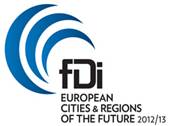 Latest ranking by the fDi Magazine, part of the Financial Times Group specialized in the FDI issues was conducted in a more competitive climate than ever. The ranking summed up 253 European cities evaluating their perspectives in FDI development revealing the cities and regions that stand the best chance of capturing future investment and expansion projects by multinational companies. Cities in Eastern Europe lead the way in the cost-effectiveness category, where foreign investors can avail of inexpensive labour costs, cheap utilities and affordable property. Latest ranking by the fDi Magazine, part of the Financial Times Group specialized in the FDI issues was conducted in a more competitive climate than ever. The ranking summed up 253 European cities evaluating their perspectives in FDI development revealing the cities and regions that stand the best chance of capturing future investment and expansion projects by multinational companies. Cities in Eastern Europe lead the way in the cost-effectiveness category, where foreign investors can avail of inexpensive labour costs, cheap utilities and affordable property.
Among Top 10 Regions by Cost Effectiveness, City of Indjija is ranked as the second best European city/region of the future while Sremska Mitrovica is 3rd and region of Vojvodina 4th in addition to Vranje (5th) and Zajecar (7th) among micro cities as well as capital Belgrade which is 7/10 among major cities compared by cost effectiveness. Moreover, when evaluating FDI Strategy in Southern Europe, city of Subotica is ranked 10th.
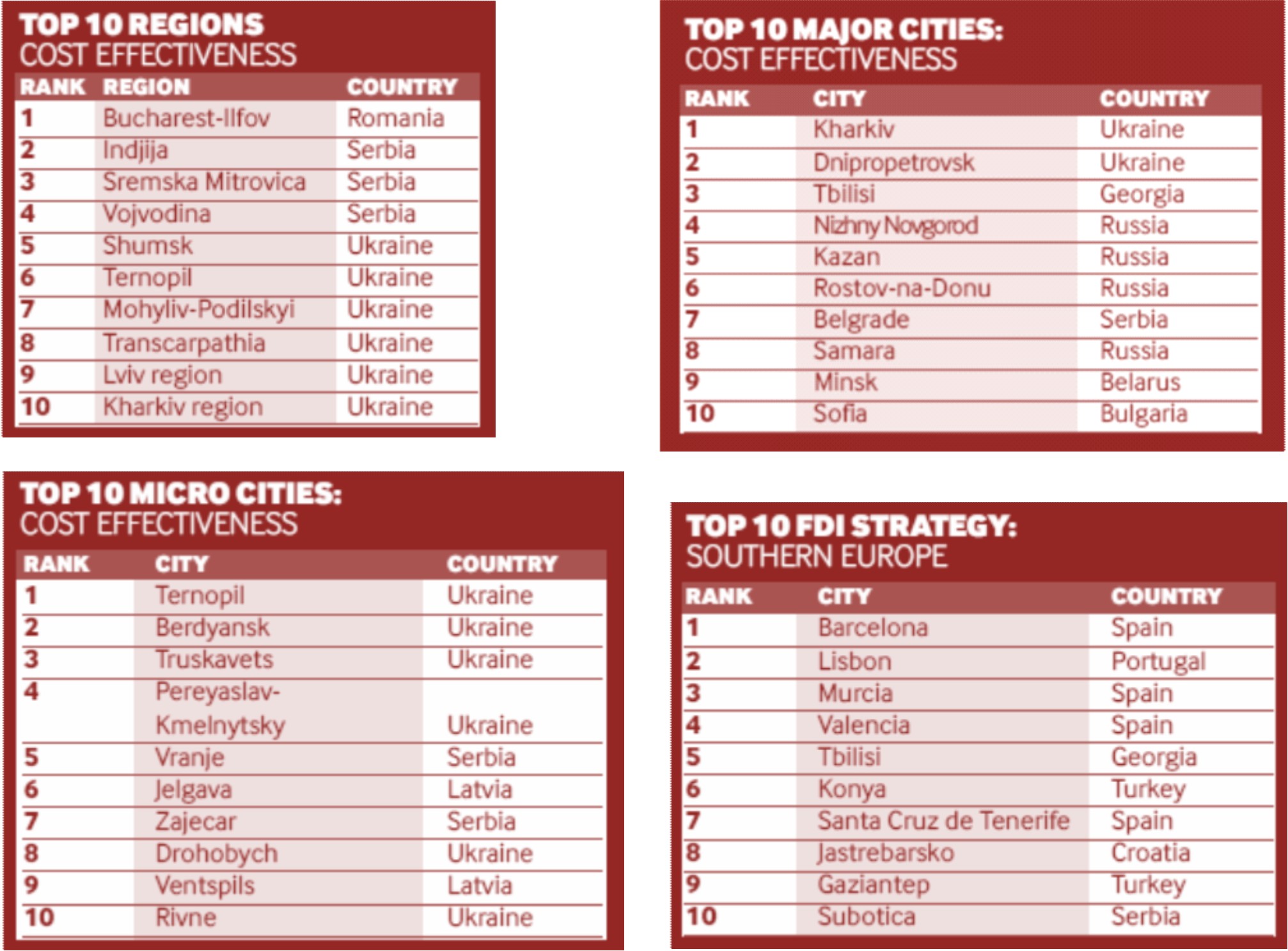
Source: European Cities and Regions of the Future 2012/13, fDi Magazine
Certification of Business Friendly Municipalities (BFC & BFC SEE)
Certification of Business Friendly Municipalities (BFC) is a process which promotes standards of efficient and transparent local administration and enables evaluation of the quality of services and information municipalities offer to investors and businesses and it is designed for all cities and municipalities in Serbia seeking to improve their business environment and attract new investments and foster local economic development. National Alliance for Local Economic Development (NALED), supported by the USAID, initiated the BFC program in 2007. Today, the certification is supported by a large number of relevant state institutions and international organizations.
The Project Business Friendly Certification South East Europe (BFC SEE) is implemented by the National Alliance for Local Economic Development (NALED) in Serbia since December 2011, encouraged by the success that Certification of Municipalities in Serbia has experienced. It is supported by Deutsche Gesellschaft für Internationale Zusammenarbeit (GIZ), Open Regional Fund for South East Europe (ORF).
Regional Diversification of FDI – Selected Investors by Industries
Food Industry
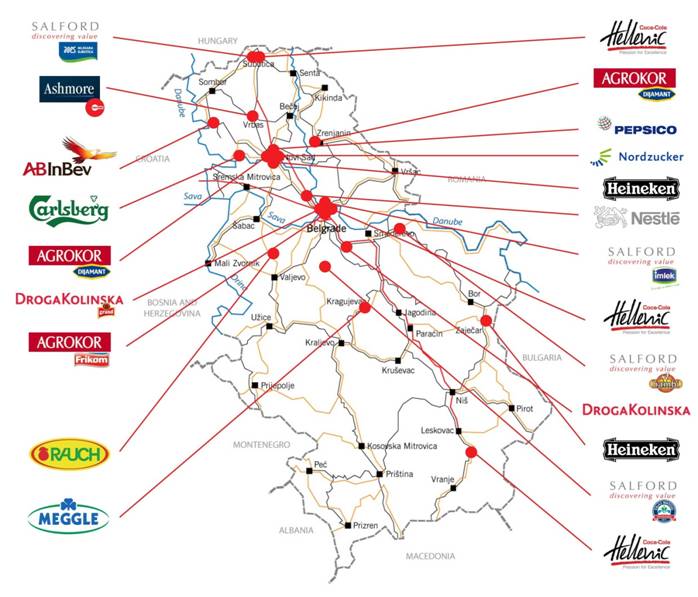
Source: SIEPA
Automotive Industry
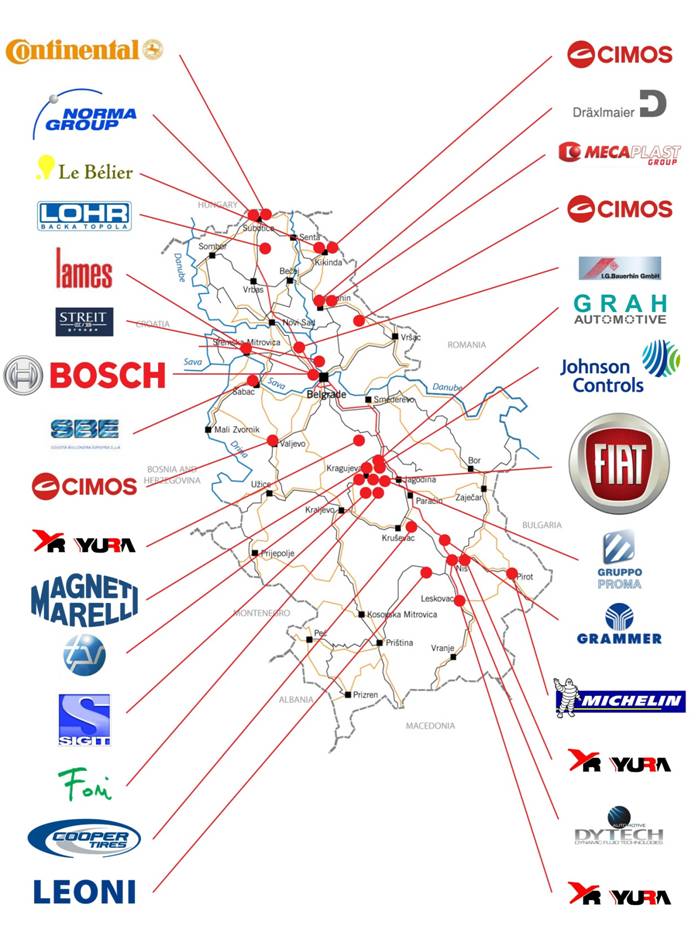
Source: SIEPA
Textile & Clothing Industry
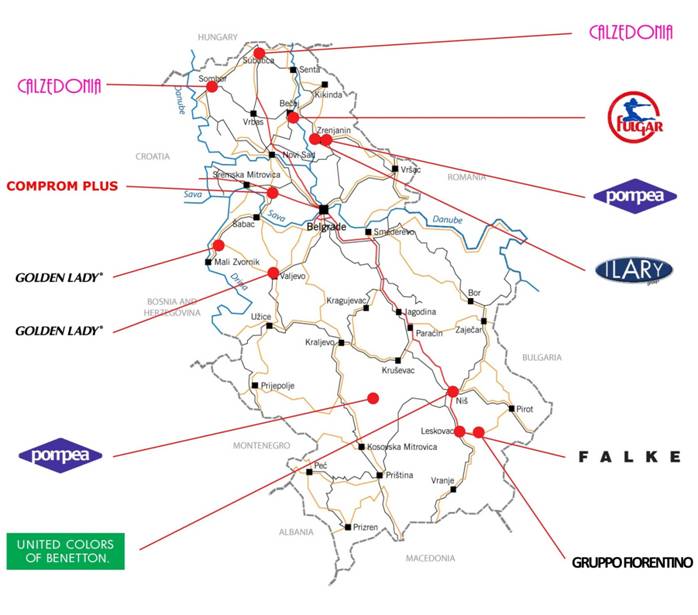
Source: SIEPA
Electronic Industry
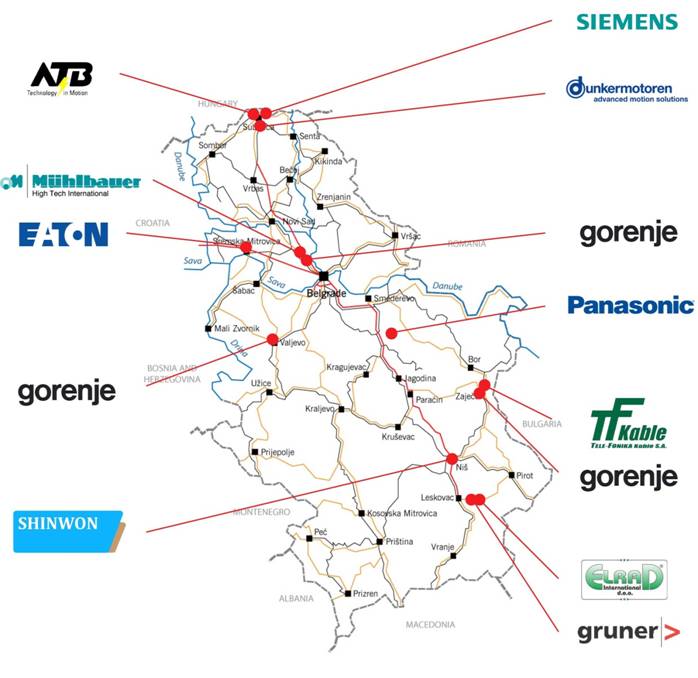
Source: SIEPA
Wood and Furniture Industry
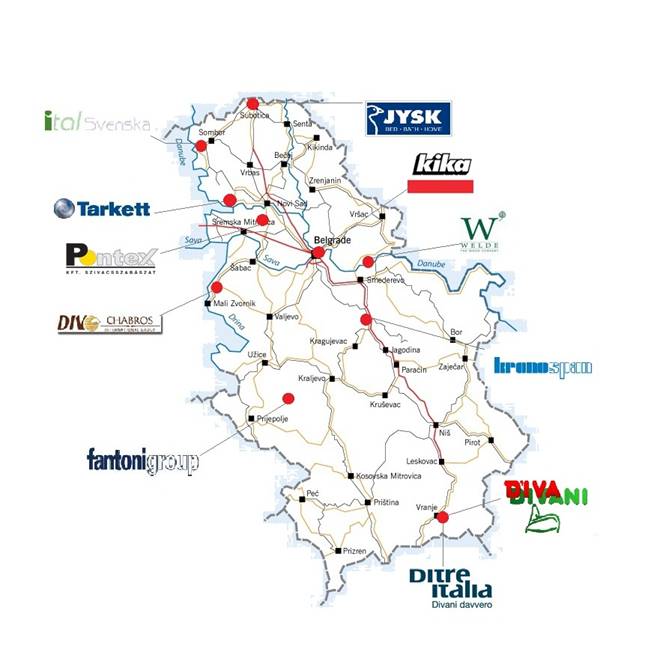
Source: SIEPA
Construction Industry
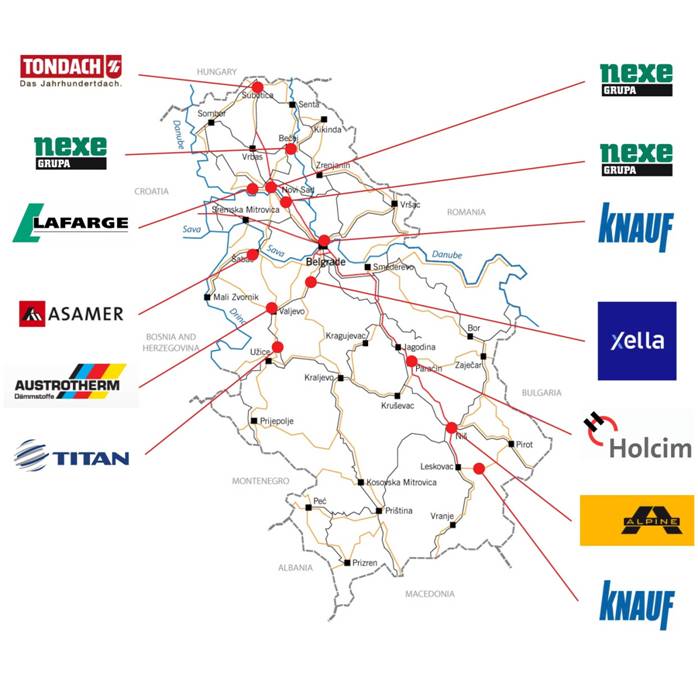
Source: SIEPA
Doing Business in Serbia in 2013, World Bank Report
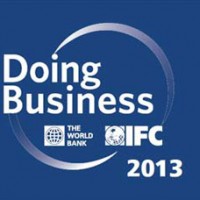 Doing Business 2013 Doing Business 2013 is the 10th in a series of annual reports investigating the regulations that enhance business activity and those that constrain it across 185 economies and over time. Regulations affecting 11 areas of a business cycle are covered: starting a business, dealing with construction permits, getting electricity, registering property, getting credit, protecting investors, paying taxes, trading across borders, enforcing contracts, resolving insolvency and employing workers. The indicators are used to analyze economic outcomes and identify what reforms of business regulation have worked, where and why.
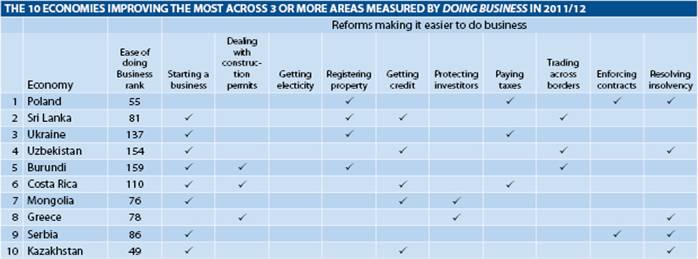
Source: World Bank Report
Serbia made it to the list of ten economies improving the most, up by 9 places from last year’s 95th position.
- Starting a business: Serbia made starting a business easier by eliminating the paid-in minimum capital requirement;
- Enforcing contracts: Serbia made enforcing contracts easier by introducing a private bailiff system, providing competitive options for enforcing a binding decision. The winning party in a commercial case may now choose between private and court bailiff to carry out enforcement proceedings;
- Resolving insolvency: Serbia strengthened its insolvency process by introducing private bailiff, reducing the starting prices for the sale of assets, prohibiting appeals, expediting service of process and adopting an electronic registry for injunctions to make public all prohibitions on the disposal or pledge of movable or immovable property.
|

